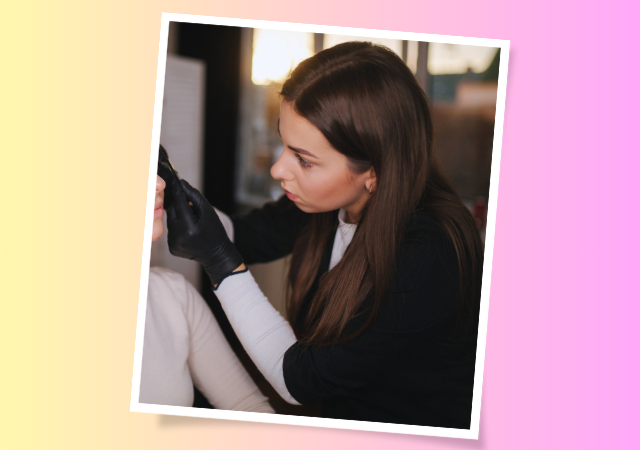What Are The Types Of Beauticians And Their Required Skills?
Introduction
In today’s image-conscious society, beauticians play a pivotal role in helping individuals look and feel their best. They are the artists behind the transformations, the experts who wield the tools and knowledge to enhance our appearances. However, what many might not realize is that the world of beauticians is incredibly diverse, encompassing various specializations, each demanding a unique skill set. From estheticians who focus on skin care to cosmetologists who excel in hair and makeup, and nail technicians who create stunning nail art, the array of beauticians and their distinct areas of expertise is vast.
This article is a journey into the realm of beauticians, an exploration of the different types of beauticians and the essential skills required for each specialization. Whether you’re considering a career in the beauty industry or seeking to understand the intricacies of this dynamic field, this article will be your guide to comprehending the diverse world of beauticians and the skills that drive their success.
1. Estheticians: The Skin Care Specialists

Estheticians, often referred to as skincare specialists, are experts in maintaining and enhancing the health and appearance of the skin. They offer a range of services that may include facials, chemical peels, microdermabrasion, and waxing. Estheticians work closely with clients to assess their skin type, identify issues, and recommend treatments and products to achieve and maintain healthy, radiant skin.
Required Skills for Estheticians:
- Knowledge of Skin Anatomy: Estheticians need a deep understanding of skin anatomy to assess and address various skin conditions. They must be able to identify skin types, concerns, and appropriate treatment options.
- Technical Skills: Proficiency in using a variety of skincare equipment and products is essential. This includes the use of facial steamers, microdermabrasion machines, and chemical peels.
- Communication Skills: Estheticians should be able to communicate effectively with clients to understand their concerns and educate them on proper skincare routines.
- Sanitation and Hygiene: Maintaining a clean and hygienic workspace is critical to prevent infections and ensure client safety.
Education and Training: Estheticians typically undergo formal training at beauty schools, earning a diploma or certification. The curriculum includes theoretical knowledge and hands-on training in skincare techniques. Licensing requirements vary by state or country, but passing a state licensing exam is typically necessary to practice as an esthetician.
2. Cosmetologists: Masters of Hair and Makeup

Cosmetologists are perhaps the most well-known type of beauticians. They are experts in hair care, hairstyling, and makeup application. Cosmetologists offer a wide range of services, including haircuts, coloring, hair treatments, and makeup for special occasions such as weddings and photo shoots.
Required Skills for Cosmetologists:
- Haircutting and Styling: Cosmetologists should be skilled in cutting, styling, and maintaining hair. They should also have an understanding of hair textures and face shapes to create the most flattering styles.
- Coloring Techniques: Proficiency in hair coloring, including highlights, lowlights, and hair dye, is essential. Cosmetologists must understand color theory and be able to recommend suitable colors to clients.
- Makeup Application: Knowledge of makeup products and techniques is crucial for special events, photoshoots, or theatrical makeup.
- Client Consultation: Effective communication is key in understanding clients’ needs and preferences and providing them with the best possible services.
Education and Training: Becoming a licensed cosmetologist typically requires completing a cosmetology program at a beauty school. These programs cover various aspects of hair care, styling, makeup, and sometimes even skincare. After completing the required training hours, individuals must pass a state licensing exam to practice as a cosmetologist.
3. Hair Stylists: The Artists of Tresses

Hair stylists, as the name suggests, are specialists in the art of hair. While cosmetologists often incorporate hair styling into their repertoire, hair stylists focus solely on hair-related services. They are known for their expertise in creating stunning hairstyles and maintaining hair health.
Required Skills for Hair Stylists:
- Hair Cutting and Styling: Hair stylists are experts in cutting and styling hair to create fashionable and personalized looks for their clients.
- Knowledge of Hair Products: They should have a good understanding of hair products, including shampoos, conditioners, and styling products, to recommend the right products for clients’ hair types and concerns.
- Texture and Techniques: Proficiency in handling different hair types and using various techniques, such as curling, straightening, and braiding, is essential.
- Client Relationship: Building long-term relationships with clients is crucial for a successful hairstyling career. This includes understanding their preferences and providing exceptional customer service.
Education and Training: Hair stylists usually complete specialized training programs or apprenticeships in hairdressing. In some regions, they may be required to obtain a hairstylist license, which involves passing a licensing exam. Continuing education is common in the industry to stay updated with the latest trends and techniques.
4. Nail Technicians: The Artists of Nails

Nail technicians, also known as manicurists and pedicurists, are skilled professionals specializing in nail care. They provide a range of services, including manicures, pedicures, nail art, and nail extensions. Nail technicians work closely with clients to create stunning nail designs and maintain nail health.
Required Skills for Nail Technicians:
- Nail Artistry: Nail technicians must have a strong sense of creativity and attention to detail to create intricate nail designs.
- Knowledge of Nail Products: Understanding various nail care products, nail polishes, and nail extension techniques is essential.
- Nail Health and Safety: Maintaining the health and hygiene of clients’ nails is a top priority. Nail technicians need to ensure sanitation and infection control in their work.
Education and Training: Nail technicians typically complete nail technology programs or courses at beauty schools. Licensing requirements vary, but many regions require nail technicians to pass a licensing exam to practice professionally. Ongoing training and certification in nail artistry are also common for those who wish to excel in this field.
Overlapping Specializations

In the beauty industry, it’s common for beauticians to diversify their skills by training in multiple specializations. For example, a cosmetologist may choose to become proficient in makeup artistry, while a nail technician might expand their expertise to include skincare services. These overlapping skills can make beauticians more versatile and in demand, as they can offer clients a broader range of services.
Advanced Training
As the beauty industry constantly evolves, beauticians often seek advanced training and certifications to stay up-to-date with the latest techniques, products, and trends. This commitment to continuous learning helps them remain competitive and offer cutting-edge services to their clients.
Importance of Diversifying Skills
Diversifying skills not only benefits beauticians professionally but also enhances the client experience. Clients often appreciate having a one-stop-shop for their beauty needs, from hair and makeup to skincare and nail care. The ability to offer a wide range of services can lead to increased customer loyalty and satisfaction.
Soft Skills for Beauticians

While technical skills are critical for beauticians, soft skills are equally important for success in the beauty industry. These skills are essential for effective communication, building relationships with clients, and delivering exceptional customer service.
1. Customer Service: Beauticians must be skilled in providing outstanding customer service. This includes being attentive to clients’ needs, actively listening to their concerns, and addressing any questions or uncertainties they may have.
2. Communication: Effective communication is essential in the beauty industry. Beauticians need to be able to discuss and understand their clients’ preferences and offer guidance and recommendations. Clear communication also plays a vital role in avoiding misunderstandings and ensuring that clients leave satisfied.
3. Time Management: Time management is crucial, as beauticians often work with appointments and must ensure they stay on schedule. Punctuality and efficient time management help create a positive experience for clients and contribute to the overall success of a beautician’s career.
4. Creativity: Creativity is a hallmark skill for many beauticians, particularly in fields like cosmetology and nail artistry. The ability to come up with innovative and unique designs can set a beautician apart from the competition.
5. Adaptability: The beauty industry is dynamic and ever-changing. Beauticians need to be adaptable and open to new trends, techniques, and products. Being willing to embrace change and learn continuously is a key soft skill for success.
Business and Marketing Skills

In addition to technical and soft skills, beauticians often need to develop business and marketing acumen to build a successful career.
1. Self-Promotion: Beauticians often need to market themselves to attract and retain clients. This can involve creating a personal brand, maintaining an online presence through social media, and effectively showcasing their work.
2. Building and Managing a Client Base: Building a loyal client base is crucial for a beautician’s success. This includes retaining existing clients while actively seeking new ones. Beauticians should have a strategy for client retention and growth.
3. Financial Management: Understanding financial management is essential for those who operate their own beauty businesses. This includes budgeting, pricing services, managing expenses, and ensuring profitability.
Tools and Equipment
Beauticians rely on a wide range of tools and equipment to perform their services. These tools are essential for delivering quality results, maintaining hygiene, and ensuring the safety of both the beautician and the client.
Knowledge of Tools: Beauticians must have a thorough understanding of the tools and equipment they use, including their proper operation and maintenance.
Sanitation and Hygiene: Maintaining a clean and hygienic workspace is a fundamental requirement in the beauty industry. Beauticians must follow strict sanitation and disinfection protocols to prevent the spread of infections.
Safety Procedures: Safety is paramount when working with tools and chemicals in the beauty industry. Beauticians should be well-versed in safety procedures to prevent accidents and injuries.
Trends and Innovations
The beauty industry is one of constant evolution. New trends, techniques, and technologies emerge regularly, shaping the way beauticians practice their craft.
Staying Current in the Industry: To remain competitive and relevant, beauticians need to stay informed about the latest industry trends. This might involve attending workshops, seminars, and industry events to learn about new techniques and products.
Embracing New Techniques and Technologies: The adoption of new techniques and technologies can set beauticians apart. This might include staying current with the latest hair color trends, makeup techniques, or the use of advanced skincare equipment.
Sustainability in Beauty Practices: As sustainability becomes increasingly important, beauticians should also consider eco-friendly practices. This might involve using environmentally friendly products and adopting sustainable practices in the salon or studio.
Conclusion
Beauticians are the artists and experts who help individuals look and feel their best. The beauty and wellness industry offers a diverse range of specializations, from estheticians focusing on skincare to cosmetologists excelling in hair and makeup, hair stylists creating stunning hairstyles, and nail technicians crafting nail art. Each specialization comes with its unique set of required skills, education, and training.
In addition to technical skills, soft skills like effective communication, time management, and adaptability are crucial for success in the industry. Beauticians often diversify their skills, and many pursue advanced training to stay current with the latest trends and innovations.
Building a thriving career in the beauty industry also involves business and marketing skills, such as self-promotion, client base management, and financial acumen. Moreover, maintaining the highest standards of sanitation, hygiene, and safety is essential to protect both beauticians and their clients.
As the beauty industry continues to evolve, beauticians should be open to new techniques, technologies, and sustainability practices to provide the best possible service and cater to the ever-changing preferences of their clients. Whether you’re considering a career as a beautician or seeking to understand the diverse world of beauty specialties, the skills and knowledge outlined in this article are the foundation of success in this dynamic and rewarding field.

My name is Rohit Vagh and I’m a content writer specializing in fashion and lifestyle. I have three years of experience in this field and have written various articles. My writing style is creative and engaging, and I strive to create content that resonates with my readers. I have a deep passion for fashion and am constantly researching the latest trends and styles to make sure my readers are up to date. I’m excited to continue my career in blogging, and I’m always looking for new opportunities in the fashion and lifestyle space.





